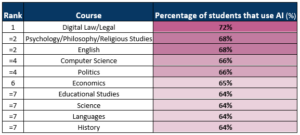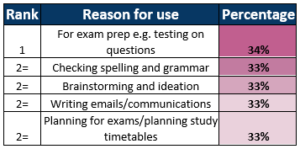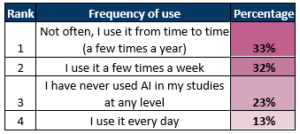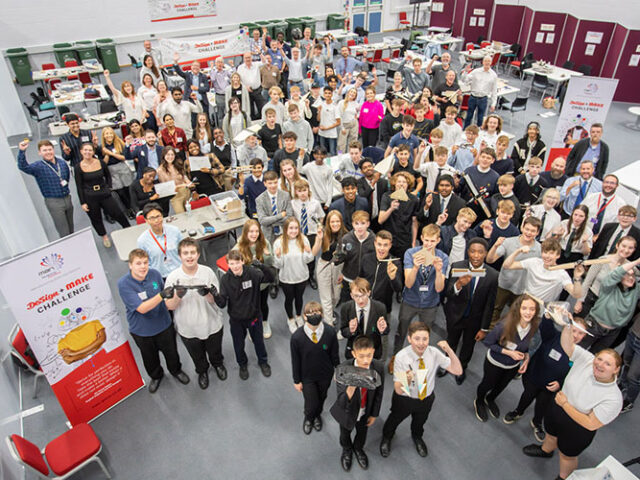New data from The Knowledge Academy has revealed that almost three-quarters (72%) of respondents studying Digital Law or Legal courses at university admit to utilising ChatGPT in their studies.
University courses where ChatGPT is most commonly used

The bot is said to be able to help extract key facts and arguments from sources, however, some say the tool may fabricate content, making it important that those using it always independently verify their work.
Ranking in joint second position, almost seven in ten (68%) of those studying Psychology, Philosophy, Religious Studies and English have also made use of ChatGPT in their studies.
However, there has been speculation over whether AI algorithms are trained on biased data, revealing ethical dilemmas.
Both Computer Science and Politics ranked joint third, with two-thirds (66%) of respondents on these courses stating that they use ChatGPT in their studies.
University student’s most common reasons for using ChatGPT

According to the findings, exam preparation such as practice questions, is the most common reason for utilising ChatGPT, with over a third (34%) of university students stating this as their reason.
A third (33%) of university students also revealed that they use the bot for checking spelling and grammar, brainstorming and ideation, writing emails, or planning study timetables.
How frequently is ChatGPT used in university work

A third (33%) of university students say they make use of ChatGPT a few times a year, with just under a third (32%) using the bot a few times a week.
Interestingly, just over a tenth (13%) of university Students admit to using ChatGPT every day in their studies.
Martha Folkes, Head of Apprenticeships at The Knowledge Academy says: “The prevalence of AI has been growing recently and has prompted much debate in the education sector among students. With recent reports of students having their work disqualified for plagiarism reasons linked to the use of ChatGPT, it is crucial for students to ensure they aren’t using it excessively, or in any manner which can impact their results or the legitimacy of their own work.
“ChatGPT has been reported to be useful for brainstorming ideas, organising, planning, and analysing text. It can have benefits when helping those students organise study plans and methods of revision. However, it remains crucial that students exercise their own abilities to be creative, think critically, and analyse as much as they can, with human creativity still being found to be of high importance in all areas of study. It can therefore be helpful for educational institutions to utilise ChatGPT specific disciplines and regulations, to help students know the best ways to use the bot, and those tasks or methods which should be avoided.”




